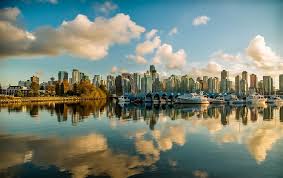
Table of Contents
Introduction
Vancouver’s real estate market is nothing short of extraordinary. Its unique combination of natural beauty, economic factors, and cultural appeal has made it a coveted destination for homebuyers worldwide. But this popularity comes with a hefty price tag.
The Allure of Vancouver
Natural Beauty and Climate
Nestled between mountains and the Pacific Ocean, Vancouver offers breathtaking views and a temperate climate. These attributes make it a desirable place to live, driving demand for housing.
Quality of Life
Vancouver consistently ranks high in global livability indexes. Its vibrant cultural scene, safety, and access to outdoor activities make it an attractive option for families, retirees, and professionals alike.
Geographic Constraints
Limited Land Supply
Vancouver is hemmed in by natural barriers, including the ocean, mountains, and agricultural land reserves. This restricts the amount of land available for development.
The Role of Urban Containment Policies
Policies designed to limit urban sprawl and protect green spaces also contribute to a limited supply of housing, increasing prices.
Population Growth and Immigration
A Popular Destination for Newcomers
Vancouver attracts thousands of immigrants each year, boosting demand for housing. This influx strains an already tight housing market.
International Appeal
The city’s reputation as a safe and stable place to live makes it a magnet for international buyers.
Economic Factors
High Incomes and Economic Stability
Vancouver boasts a robust economy, with high-paying jobs in technology, film, and finance sectors. This economic strength contributes to high real estate prices.
Foreign Investment
Wealthy international investors see Vancouver as a secure place to park their money, further driving up prices.
Government Policies
Zoning Regulations
Strict zoning laws limit high-density developments, making it difficult to increase housing supply in prime areas.
Taxes and Fees
Property transfer taxes, foreign buyer taxes, and speculation taxes aim to control prices but also add to the overall cost of real estate.
Supply and Demand Imbalance
Low Housing Inventory
A persistent shortage of available homes creates fierce competition among buyers, driving prices upward.
Growing Demand for Housing
Whether due to immigration, population growth, or lifestyle preferences, the demand for housing in Vancouver continues to outstrip supply.
Impact of Foreign Buyers
Global Wealth Influx
Foreign buyers, particularly from China and the U.S., see Vancouver as a prime location for investment.
Speculation and Investment Properties
Many properties are purchased as investments rather than homes, reducing availability for local residents.
The Role of Speculation
Flipping Houses
Speculative activities, such as house flipping, contribute to price hikes, making homes less affordable.
Investor Activities
Real estate investors often outbid average buyers, inflating the market further.
Vancouver’s Unique Housing Culture
Desire for Single-Family Homes
Despite urbanization, many Vancouver residents prefer single-family homes, which are limited in supply.
Status Symbol of Property Ownership
Owning property in Vancouver is often seen as a status symbol, further fueling demand.
The Role of Infrastructure
Proximity to Amenities
Homes close to schools, hospitals, and recreational facilities are in high demand, commanding higher prices.
Public Transportation Accessibility
Areas with easy access to public transit also see a premium in property values.
Rising Construction Costs
Labor and Material Expenses
Increased costs for labor and materials make new developments more expensive.
Regulatory Costs
Permits and compliance with building codes add to construction costs, which are passed on to buyers.
Impact of Short-Term Rentals
The Airbnb Effect
Short-term rentals reduce the availability of long-term housing, driving up rents and property values.
Reduced Availability of Long-Term Rentals
As landlords opt for higher short-term profits, long-term rental options dwindle.
Global Comparisons
Vancouver vs. Other Global Cities
While expensive, Vancouver’s market mirrors trends seen in cities like London, Hong Kong, and San Francisco.
Lessons from Other Markets
Exploring policies from other cities may offer insights into controlling Vancouver’s real estate prices.
Conclusion
Vancouver’s real estate market is shaped by a blend of natural beauty, economic factors, and global appeal. While these make the city an enviable place to live, they also contribute to its high housing costs. Addressing this issue requires a multifaceted approach involving policy changes, innovative housing solutions, and community engagement.
